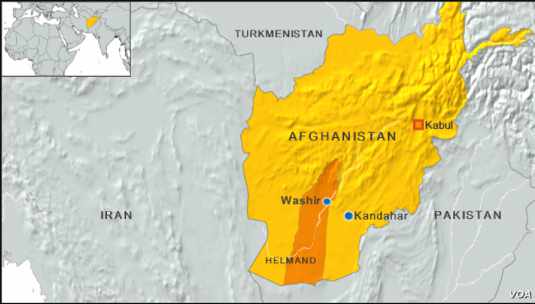Tuesday saw 21 defendants in the massive Kabul Bank scandal found guilty in Kabul, Afghanistan, including two former heads of the banking institution, bank chairman Sherkhan Farnood and former chief executive Khalillah Ferozi.
The scandal that broke in 2010 resulted in $861 million lost to fraudulent loans paid out to friends and relatives of the powerful bankers involved with the bank and brought on the collapse of the bank. The collapse was remedied by a massive bailout from the Afghan government that cost that country the equivalant of 5% of the country’s gross domestic product, making it one of the largest banking failures in the world. The Afghan government is almost entirely funded by foriegn donors.
|
|
The courts zeroed in on the top executives, Farnood and Ferozi, and found that the two had misappropriated $278 million and $530 million respectively. The court pointed out that the two men used the bank and its investors like a huge ponzi scheme, with the bank’s customers deposits used to fuel a lavish lifestyle of villas in Dubai and troves of other luxury purchases. It was found that hundreds of millions of dollars was smuggled out of Afghanistan, some of it secreted in airplane food trays, bound for parts unknown outside of the country.
Although 21 were brought to a justice of sorts, many more of the involved have not been arrested. The fraud reaches deep into the government of Afghanistan. The two bank leaders have close personal ties with heads of the Afghan government, including the president, Hamid Karzai. The government’s hand was forced after western countries explained to the Afghan government that future monies hinged upon the prosecution and cleaning up of banking debacle.
Sentencing for the two top execs of the Kabul Bank recieved what amounted to a slap on their wrists for their crimes. The prosecution had originally brought the two men up on charges of money laundering, embezzlement, and forgery which could have imprisoned the men for upwards of 20 years in jail.
The men were convicted of Breach of Trust, which carries a sentence of no more than five years. The penalties also did not include any confiscation orders and did not specify how the money was to be repaid or put into place any mechanism to do so. Also, the men have been under loose house arrest since the scandal unfolded, and it is now unclear if the house arrest will continue as the punishment for their crimes. With their ties to the highest levels of the Afghan government, it is unlikely that the two men will never see the inside of a prison for their part in the fraud that collapsed the bank.
One of the largest recipients of fraudulent loans was the Afghan president’s own brother. He has never been charged with any crime connected with the fraudulent goings on at the bank. Afghan and western investigators say that Karzai still owes tens of million dollars in loans that need to be paid back to the bank, he says he owes nothing.
The corruption at the enormous bank caused it to become insolvent in 2010, with 92% of its loan portfolio going to 19 people or companies, and the bank was taken over by regulators.





